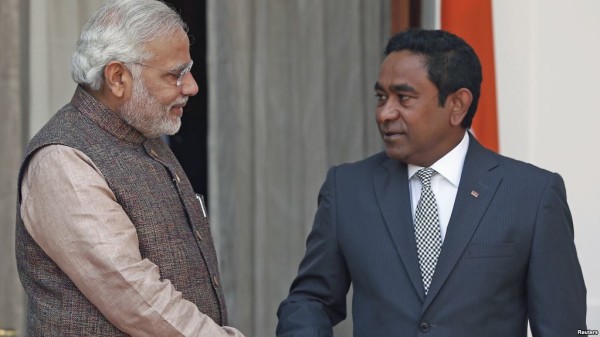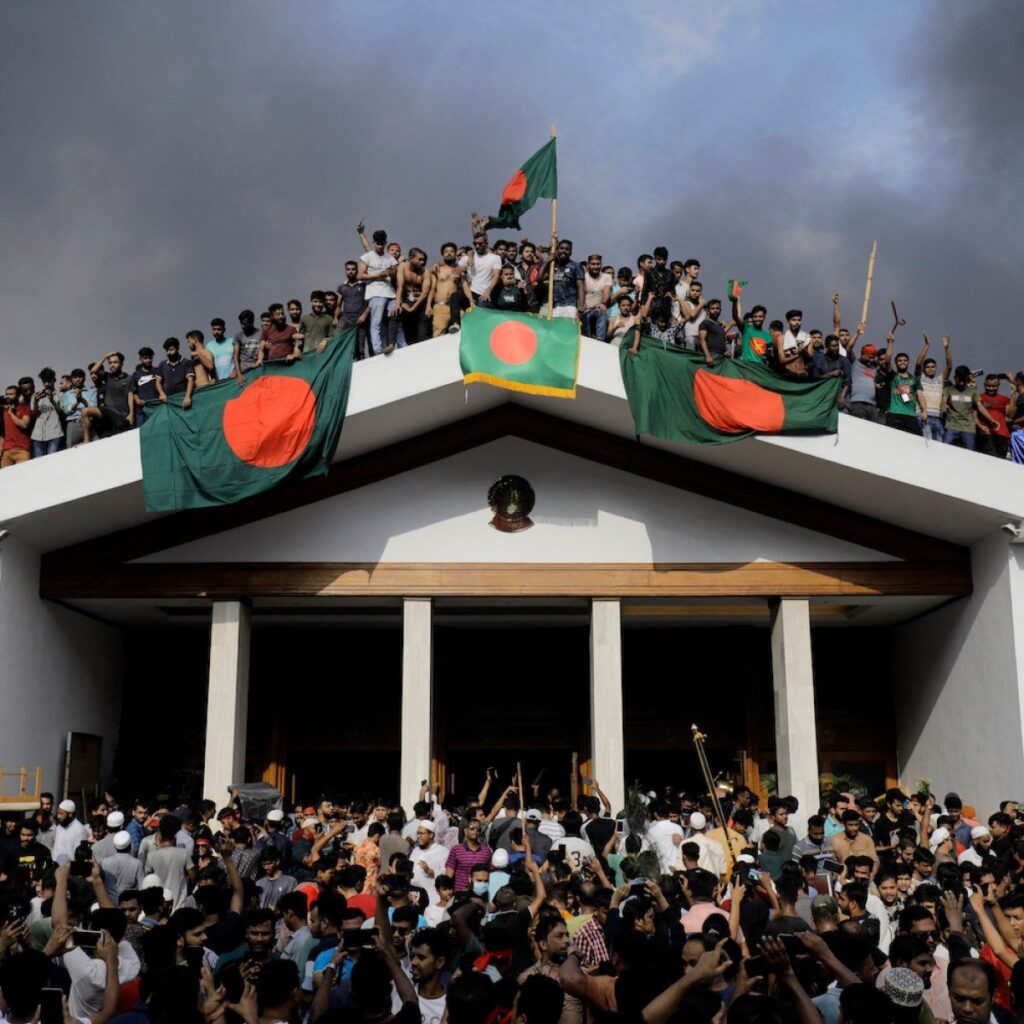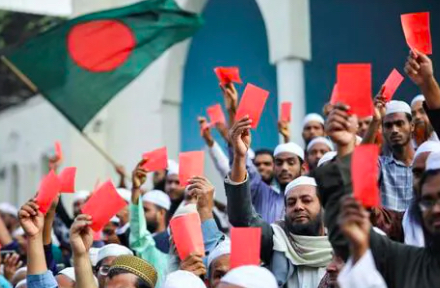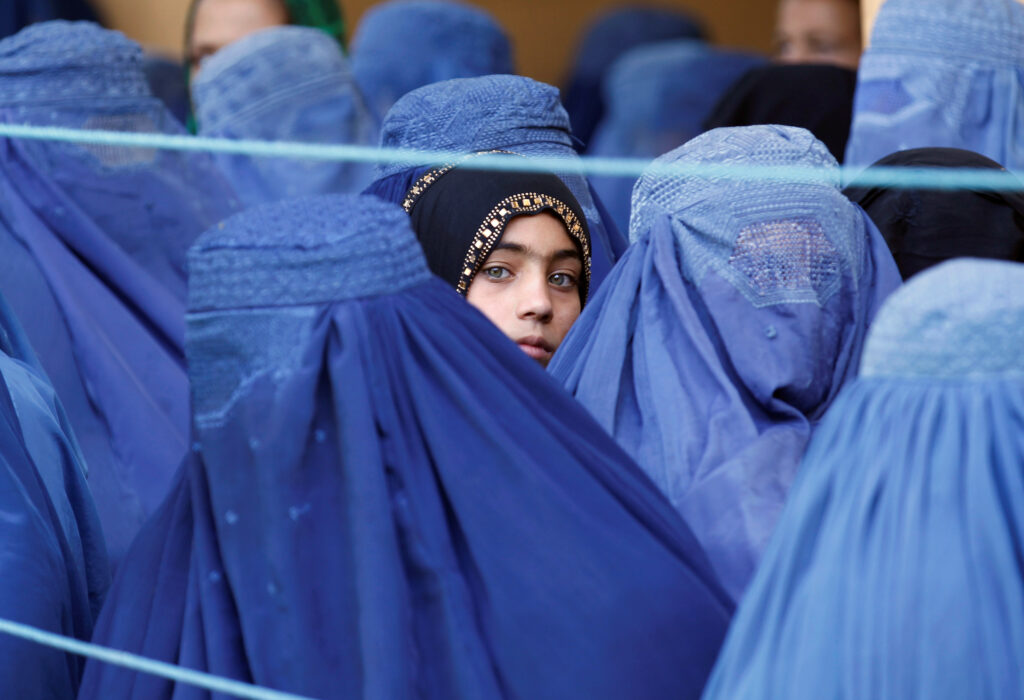MANTRAYA POLICY BRIEF#26: 08 MARCH 2018
SANJAY KAPOOR
Abstract
Maldives, which is famous for its high-end Indian Ocean resorts, has become a scene of strategic contestation between India and China. This situation has been leavened by Maldivian President Yameen Abdul Gayoom, who is trying to extricate his country from India’s arc of influence by building close a relationship with China. The latter has expanded ties with the countries of the region as part of its connectivity project, Belt and Road Initiative (BRI). Yameen has imposed a state of national Emergency after Maldivian Supreme Court asked the government to release all political prisoners. There are expectations from India to reclaim its lost influence- can it do it?

(Photo Courtesy: Wikimedia Commons)
There is a sense of loss in Delhi’s foreign policy establishment over the country’s diminishing influence in its neighbourhood. What has rankled it most is not just the manner in which tiny Maldives with a minuscule population of 500,000 has stood up to a country of India’s size and influence, but also the inability of a government in New Delhi, which prides itself for pursuing a muscular policy, to find a way to stem this downslide.
Attempts of Maldives President Yameen Abdul Gayoom to break free from India’s arc of influence and align his country closer to China has been visible since 2013 when he cancelled Indian company GMR’s US$500 million contract to build a new airport. But in recent months this has taken shape of a full-scale confrontation. President Yameen, who is the half brother of Maldives’s first President Maumoon Abdul Gayoom, has not just gone ahead building closer ties with China at the expense of India, but also made it clear to Delhi that it should stop interfering in its internal affairs. India, which stays out of the domestic affairs of its neighbours has been quite vocal after Maldivian Supreme Court ordered that all the political prisoners be released to facilitate a free and fair elections, scheduled for late 2018. Amongst those politicians would have benefited from India’s stance included former President Nasheed, who has been living in exile in London.
In a bizarre development, Yameen government arrested the Supreme Court judges who had passed the order, accusing them of taking bribes. The ruling was overturned. Yameen’s government’s disregard for democratic institutions caused strong reaction from India, US, EU and other countries in the neighbourhood. China, which was the reason for much of Yameen’s obduracy, cautioned countries – meaning India- from getting too adventurous. The Maldivian government demonstrated its defiant stand towards India when it refused to take part in a 19-country naval exercise on the specious plea that due to national emergency its navy had to safeguard its coastal assets.
Some commentators, making light of Male’s topography have called the challenge that Maldives poses to India as its “Grenada moment”- suggesting that India should send Gunboats and troops to the capital of the picturesque archipelago as US did many years ago. There is a constant reference to the precedent set by India when it had sent troops to Male to rescue President Gayoom from an attack by Tamil mercenaries in 1988 and there is no reason why it should not repeat the step now.
The geopolitical and domestic circumstances of Maldives now are very different from that of 1988. Then President Gayoom had reached out to India to fight the terrorists; this time there is no such invitation from Male. Besides now there is a resurgent China, which is giving meaning to its much vaunted connectivity policy of Belt and Road Initiative (BRI) by striking alliances with many countries of the region including Maldives.
This author was in Male when the events began to rapidly unfold with the joint opposition filing a petition in the Supreme Court to unseat President Yameen on charges of corruption. At that time no one- that includes diplomats, commoners or opposition politicians- believed that the President could be overthrown. In fact, this writer sensed helplessness amongst diplomats of some powerful nations. “Maldives is low down in the priority of Europe and the US. So there is little anyone can do. It’s basically India that has to act if it wants to preserve its hold and influence in Maldives”, explained a diplomat from a western nation. Indian foreign ministry, though more assertive then in the past, is still figuring out its options to wrest influence in this tiny archipelago.
What is really apparent is that India cannot use military force on these tiny islands. Firstly, the contest would be very lopsided. Secondly, if Maldivian navy or army holds out against India for even a few hours then fatalities would be very high as the capital city of Male has one of the highest population densities in the world.
A city of tiny lanes epitomised by excessive concrete, people here live cheek by jowl. Many of them are related to each other through marriage. 98.4 percent of Maldivians are Muslims and nearly all of them Sunnis. Quite a few of them have shown inclination to join the Islamic State (IS) in the last few years. Police sources claim that about 250 odd Maldivians have fought alongside the IS in Syria. Those who are seen to be atheists live under the shadow of death as radicalisation of youth has increased rapidly under Yameen. In fact he has quietly fed hatred towards India with a media outlet, Vaguthu, close to him criticising Prime Minister Narendra Modi for Hindu majoritarianism and treating Muslims shabbily. An article, for instance, accused India of violating international law in Kashmir and being Islamophobic towards India’s Muslim population. It went on to describe Modi as an “extremist Hindu” with a history of carrying out extreme actions against Muslims”.
All this makes for an incendiary mix allowing Yameen to take advantage of the helplessness of its former allies.
Why doesn’t President Yameen like India? Most of the people that this writer spoke to in Maldives including opposition politicians were unanimous that distancing himself from India not only allows him to make money from Chinese companies investing in infrastructure projects, but also escape democratic scrutiny that comes with relations with India and the West. In 2016, Al Jazeera documentary “Stealing Paradise” had shown fixers carry cash in black meat bags. Yameen had owned up that he took the money, but later claimed that he did not realize that it was ill gotten. He also promised that it would be returned to the treasury. No one knows whether he did. His critics that includes former Speaker of Majlis Shahid Abdullah have been alleging that Yameen has given away islands to the Chinese for a song. “We have no idea about whether this government has given sovereign guarantees to any company in the contracts that have been signed with the Chinese government. We have no clue about our national debt. We only know that a lot of money has been syphoned off from many of these projects” explained Abdullah.
“He is the only person seen in the government. We don’t know how the decisions are taken,” informed Ali Zahir, deputy leader of Adhaalath party. Earlier in January this year, exiled Former President Nasheed in a press conference in Colombo called attention to the land-grabbing ways of the Chinese and said, “A large emerging power is busy buying up the Maldives, buying up our islands, buying up our key infrastructure, and effectively, buying up our sovereignty.
China is omnipresent in the Maldives. More than a quarter of a million odd tourists come from China. India in comparison sends only 80,000 tourists. Chinese companies are executing the bridge from Hulhamale to capital Male. They are also constructing the airport. Most of these projects cost far in excess of the cost of execution. A diplomat who did not want to be named gave the example of the Velena airport- Male’s international airport- which GMR was ready to construct for US$500 million. According to him, “the cost of the same airport has been hiked to $ 1.2 billion. You know where this extra cost will end up?”
There are real fears that Maldives, under excessive Chinese debt may lose its sovereignty. Like Sri Lanka was forced to give control of its Hambantota port as it failed to pay off its debt, Maldives government may be staring at a similar fate. There is a talk of China setting up a Joint observation post in Maldives and also reports that its naval ships could have an eye on its port. Maldivian opposition parties have claimed that they have found corroboration of sanctioned North Korean oil tankers transacting with Chinese ship, which was partially owned by President Yameen’s relative.
Maldives poses a serious challenge for the Indian government despite its small size. Its 1200-odd islands give it a huge exclusive economic zone and access of sea lanes that could be benefit China’s attempt to emerge as a maritime power.
What can India do? India has enormous goodwill amongst Maldivians. Many of them have had education in India and look at it for cultural and economic sustenance. The biggest assets for India is its soft power and Maldivians will not be able to severe this link any time soon. In fact India should give Maldivians more visas and encourage Indian businesses to invest here. Indian private sector investment is quite abysmal- just limited to two islands that are under the control of Tatas. Though there are 23000 Indians working in Male and in other islands- many of them in its fancy island resorts.
It is a tough call for the Indian government, but its neighbourhood policy will start making sense if it is perceived to be large hearted and visionary. New Delhi should talk to the Maldivian envoy who was despatched by President Yameen after he imposed emergency in the country. India has to use its influence with US and the Western countries to force China and Saudi Arabia to convince Yameen to accommodate other Presidential candidates in August 2018 polls. Similar pressure paid off when China and Saudi Arabia allowed US sponsored resolution to put Pakistan in the FATF (Financial Action Task Force) grey list of countries involved in funding terror. In the last few weeks, India and China have given an impression that they can work together in sorting some of their bilateral differences. It remains to be seen whether they agree on reining in the dictatorial ways of President Yameen and restoring democracy in the country.
(Sanjay Kapoor is the Editor of Delhi based Hardnews Magazine who writes on South Asia. This Policy Brief is based on his recent visit to Male and is published as part of ‘China and South Asia’ and ‘Regional Economic Cooperation and Connectivity’ projects. All Mantraya publications are peer-reviewed.)




